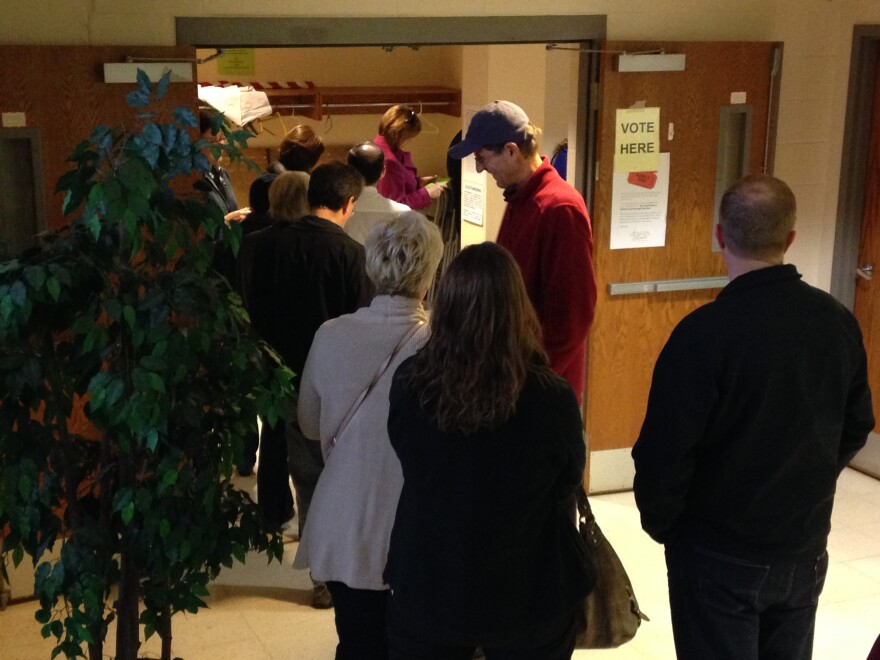Turnout for midterm elections typically lags behind turnout in a presidential election year, and this year appears to be no exception.
On the Kansas side, Secretary of State Kris Kobach estimates somewhere around 50 percent of the Kansas registered electorate will vote. That's slightly more than the average low to mid 40 percent who typically turnout for mid-terms.
On the Missouri side, Secretary of State Jason Kander is projecting just shy of 40 percent turnout, where the lions share of the attention has focused on a series of ballot issues.
Disproportionate attention
If you live anywhere in the Kansas City metro and have turned on your TV or checked your mailbox, you know the gubernatorial and Senate candidates in Kansas have been screaming for your attention.
Emporia State political science professor Michael Smith says the shouting may create a larger turnout than in a calmer, quieter election year. But he said even those who tend to be politically engaged may stay home.
“I think there's a perception that this is not a ‘wave' election," Smith says.
'Wave elections' — like the first African-American presidential candidate in 2008, or the Gingrich revolution of 1994.
This year is different, Smith says.
“It is true that the Republicans do have a pretty good shot of capturing the majority in the Senate but that’s only because the numbers are so close anyway," he says. "A lot of the election is turning on local issues - did (Senator) Roberts actually live in Kansas - individuals and their personalities. It's like an old school election when politics was more local.”
Also, Smith says the voter ID law in Kansas that requires proof of citizenship is likely to depress turnout, especially among the Latino community.
As of noon Monday, the Kansas Secretary of State's office was reporting that the registration of some 25,000 voters remained incomplete due to inadequate identification.
Less turnout for Constitutional amendments
On the Missouri side, the down-ballot state auditor’s race has attracted what little spotlight there’s been on Missouri races this election cycle. But George Connor, chairman of the political science department at Missouri State University says Missourians are making a mistake to think there’s nothing worth paying attention to in their state.
"I’m not sure people realized there (was) an election coming up , honestly," he says. "But there are important ballot initiatives that could have a dramatic effect on our day to day lives."
For example, Amendment 6 would establish a six-day early voting period. Missouri is one of 14 states currently without an early voting option.
Amendment 10 would limit the authority of the governor in establishing budget priorities — further politicizing the already acrimonious budget process.
Amendment 2 would allow a suspects' prior criminal records to be admissible in child sex-abuse trials.
And, Amendment 3 would tie teacher tenure and salaries to test scores and other performance measures.
Connor says any of these measures, if passed, is significant.
"(They'd have) a tremendous effect. It’s a shame people don’t pay enough attention, but it’s a quirk of the election cycle," he says.
Polls are open Tuesday until 7:00 p.m. in Missouri and Kansas.
Correction: We mistakenly reported 175 thousand incomplete registrations in Kansas the day before the mid-term elections. The number is 25,ooo according to the Secretary of State's office. We regret the error.




